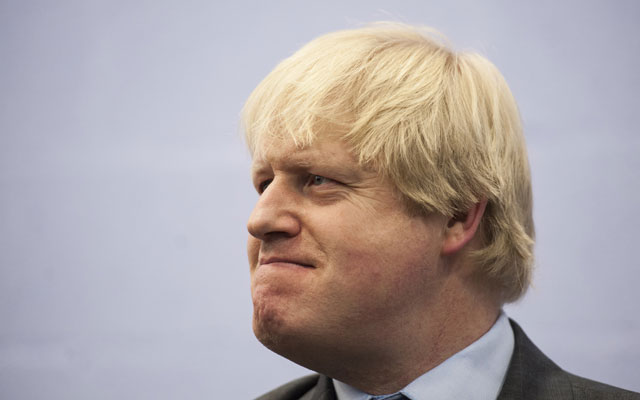London Mayor Decries Posthumous Trial of Russian Whistleblower
Ariel Cohen / Benjamin Tigay /
London mayor Boris Johnson published an op-ed Monday in which he decried the posthumous trial of whistleblower Sergei Magnitsky.
Johnson called Magnitsky “a martyr trampled by a corrupt system” and called on the United Kingdom and the European Union to pass a Magnitsky Act—which levies financial sanctions and visa restrictions on the Russian officials involved in Magnitsky’s death—of its own. International sanctions against Magnitsky’s persecutors would send an unequivocal signal to Moscow: cease and desist gross human rights violations.
Johnson’s support of the Magnitsky Act coincides with growing support for a similar measure in Europe. The European Parliament approved a non-binding resolution calling for financial and visa restrictions on Russian officials, but the measure needs support from all EU countries for full effect.
Magnitsky died in 2009 from injuries suffered during his inhumane detention on allegations of fraud. Magnitsky accused Russian government officials of embezzling over $230 million of taxes paid to the Russian treasury by his client, Hermitage Capital, headed by the American-born, London-based financier William Browder. To make the problem go away, Russian officials charged Magnitsky with tax fraud, jailed him, beat him, and left him to die without medical attention.
Attempting to save face, the Russian prosecutors’ clumsy efforts to posthumously convict Magnitsky is meant to discredit the U.S. law named after him—but this strategy will backfire. The macabre mockery of justice in Moscow around Magnitsky is gaining worldwide attention.
Moscow finds itself in a public relations hole, but it keeps digging. Now Magnitsky’s former client, Browder, will be tried in absentia in Russia on charges of fraud. Just like Magnitsky’s case, Russian officials vengefully want to besmirch Browder’s name because he tries to expose Russian corruption, and they want to intimidate Browder with Interpol arrest warrants. But they are messing with the wrong guy.
Browder has been tirelessly campaigning to get EU countries on board with sanctions against Russian officials, saying it is his “single biggest priority.” EU sanctions would do even more harm to officials’ checkbooks than the Magnitsky Act because Russians have “more property and money in Europe” than in the United States.
Browder has also tried to track the money involved in the case—$230 million out of the estimated $211.5 billion that illegally left Russia from 1994 to 2011. He has fought tooth and nail to get countries to investigate the money trail.
Browder has a great supporter in the outspoken London mayor. In his op-ed, Johnson lamented the systemic corruption in Russia. Johnson says that government officials take in so much money from corruption that they will do anything to protect the racket. The Russian government is using police investigations, tax audits, and compliant prosecutors and judges to attack the opposition—like in the cases of the oil tycoon Mikhail Khodorkovsky, blogger and whistleblower Alexei Navalny, dozens of May 6 protesters, and the kidnapped leftist opposition activist Leonid Razvozzhayev, to name a few.
With mayor Johnson’s support, the U.K. and the EU can pass legislation imposing sanctions against the Russian officials responsible for Magnitsky’s death—and amplifying the effectiveness of the U.S. law.
Following Johnson’s call to action, the U.S. Congress should encourage the U.K. and the EU to impose sanctions against the Russian officials responsible for Magnitsky’s death. The only way to enact change in Russia is to hit officials where it hurts most—in their European bank accounts, real estate investments, and fancy vacation properties.
Benjamin Tigay is currently a member of the Young Leaders Program at The Heritage Foundation. For more information on interning at Heritage, please click here.

